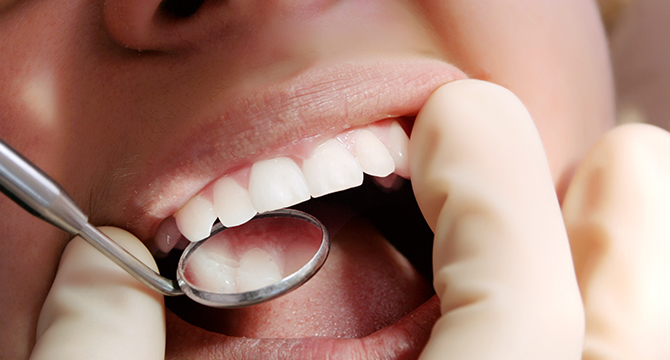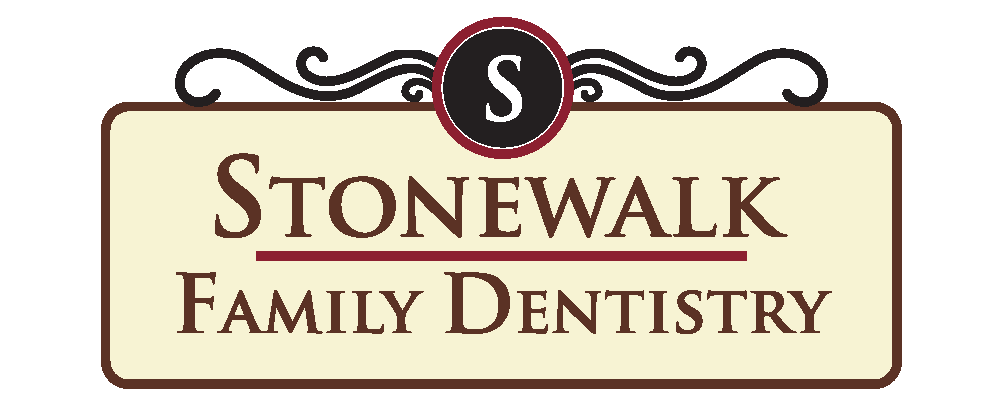Maintain Healthy Teeth as You Age

As we get older, we know it’s important to take good care of our skin and bodies to look and feel our best. But what about our teeth? You may have wondered if you need to change your oral hygiene habits as you age – are there new dangers to look out for, and how can we ensure we keep our teeth healthy for as long as possible? The good news is that today’s adults are keeping their natural teeth longer than ever. The bad news? You can’t get lazy with your oral care just because you’re no longer a growing child or teen.
To help you stay on track, we’ve compiled some adult dentistry tips below to help you take care of your teeth, inside and out, no matter what your age may be.
Maintain Good Habits
Hopefully as a child, those looking out for you instilled proper oral care into your routine and reminded you to brush twice a day and floss daily. It’s important to introduce these habits when we’re young and our teeth and jaws are still developing; however, adult dentistry care is no different. Dentists still recommend these habits, and your oral hygiene is just as important now as it was when you were a child.
Beware of Gum Disease and Tooth Decay
If we don’t maintain proper oral care, it’s possible for us to lose teeth at any point in our lives – in fact, the average adult between ages 20 and 64 has at least three decayed or missing teeth. What we must understand, however, is that the usual cause behind tooth loss changes as we age.
Tooth decay is the most common cause of tooth loss until about the age of 30, at which point periodontal (gum) disease becomes the biggest threat in adult dentistry. This remains the same until about the age of 60, when tooth decay again is the main concern, but for different reasons than when we are younger. Due to the accumulation of restorative dental work, such as fillings or crowns, as well as gum recession, older adults can experience tooth decay at a much faster pace and lose their teeth at a greater rate.
Being aware of the greatest threat during certain stages of our lives can help us remember the adult dentistry oral health tips most pertinent to us. If you’re between the ages of 30 and 60 and are experiencing any symptoms of gum disease, such as inflammation, redness or swollen gums, visit your dentist to ensure the problem is treated at an early stage.
Watch What You Eat
Not only are brushing and flossing habits important for your adult dentistry care, your nutrition is vital as well. For instance, we need protein and calcium for healthy tooth structure and enamel, and we need iron to boost our immune function and to take care of our mouth’s connective tissues.
And it’s not just what you eat that matters to your adult dentistry, but when you eat. Most dental experts will suggest limiting between-meal snacks, especially common starchy or sugary snacks like chips or sweets, as it will incur the acid erosion process more frequently throughout the day. For those times when you do want to snack, a healthier option for your teeth may be cheese, yogurt or vegetables.
It’s also important to watch out for common causes of cracks in teeth – for instance, popcorn kernels and hard nuts. While contrary to popular belief, our teeth don’t actually become more brittle with age, adults do tend to have more fillings and past root canal therapy, which make the teeth more vulnerable to fracture.
Pregnant? Be Extra Cautious
Women who are expecting understand that they need to take better care of themselves to ensure a healthy pregnancy, and this includes oral care. Pregnancy causes your hormone levels to change, and this fluctuation can leave your teeth more vulnerable to bacteria, leading to a greater risk of common adult dentistry threats like gum disease, which can actually cause premature birth. You may also experience gum inflammation and even benign tumors in your mouth, caused by hormonal overgrowth of tissues on the gums. If you experience any of these issues while pregnant, visit your dentist to ensure your oral health is still in good condition.
Don’t Grind Your Teeth
Chronic, involuntary teeth grinding, also known as bruxism, is a common problem in adult dentistry, particularly in women aged 27-40. Often, it is caused by an excess of stress and anxiety, feelings with which many adults are familiar. If left untreated, bruxism can lead to tooth sensitivity, jaw pain or even fractured teeth. Thankfully, your dentist can often fix the problem with a simple night guard.
Whiten with Care
As we get older, our teeth can acquire built-up stains from food and drink. Many adults now turn to whitening products, like toothpaste, trays and strips, to remove these stains. However, you should ease into your whitening routine or seek professional whitening from your dentist in order to avoid common side effects like teeth sensitivity and gum irritation.
Watch Out for Dry Mouth
A healthy amount of saliva helps keep your mouth clean – but if you suffer from dry mouth, a common side effect of certain medications, it can be easier for tooth decay to set in. If you feel you may be suffering from dry mouth, be sure to continue with proper adult dentistry habits to fend off decay, talk about your medications with your doctor, and look into oral health tips and products that specifically help with dry mouth, such as mouthwash, toothpaste and more.
Go to the Dentist!
Even as an adult, regular check-ups with your dentist are still vital to your oral health. Continue visiting twice a year, or whenever you are experiencing painful symptoms. Your dentist will ensure your teeth and gums are in good condition, and a thorough cleansing will slough off tartar and plague build-up that regular brushing and flossing cannot.
Healthy teeth and gums will help you look better and feel more confident as you age – plus, proper adult dentistry habits will allow you to hold on to your natural teeth longer. If you’re concerned about the state of your oral health, or if it’s time for your biannual check-up, contact the team at Stonewalk Family Dentistry, or call us directly at (770) 777-1911. Our comprehensive, family-oriented practice serves patients of all ages in Alpharetta and Milton, Georgia, as well as the surrounding areas.
More articles

2022
Bad Breath: Rumors, Truths & Misnomers
From the foods we eat, to the medicines we take, what we ingest from day-to-day has the potential to greatly affect our bodies – particularly our breath. When it comes to halitosis, the scientific name for bad breath, there are a number of bad breath causes that you may have never considered. In addition to proven causes and cures, bad breath rumors often circulate, making it difficult to determine fact from fiction when sifting through the helpful pieces of oral hygiene advice.

2022
Plaque Removal / Tartar Prevention Between Visits
Here’s a dentist joke for you: what is gross, sticky, and really bad for your teeth and gums? It’s plaque, which turns into tartar and can lead to all kinds of oral health problems. And, in reality, fighting back against plaque and tartar on your teeth is no joke! Plaque is one of the primary causes of tooth decay and gum disease, but not many people really know what it is or how to prevent it. So, here’s what you need to know about plaque and tartar — what it is, how to prevent it, and how to get rid of it between dental visits.

2022
How to Choose the Best Mouthwash for You!
Whether you are new to the different types of mouthwashes, you’re realizing the one you are using isn’t working out, or you just want to find something different, choosing the right type of mouthwash for you can be a daunting task. The oral health aisle at any store typically has a floor-to-ceiling selection of mouthwash options, all making different claims with different ingredients. To make your choice a little easier, here is our helpful guide for choosing a mouthwash that’s right for you.
